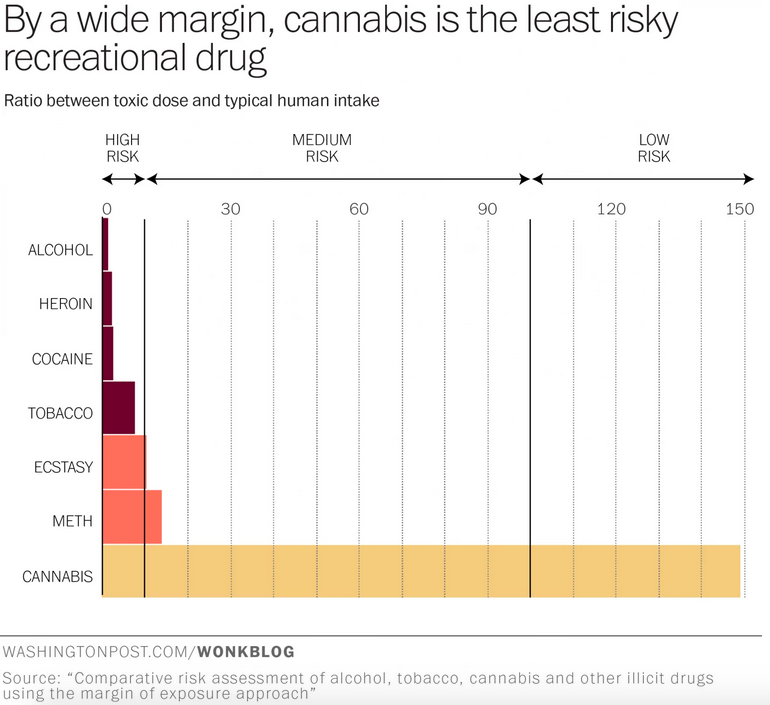How Hillary Clinton Handles Marijuana Will Be Interesting...

By:
As 2016 presidential candidate Sen. Rand Paul (R-Ky.) continues to voice disdain for the war on drugs, it will be interesting to see whether fellow presidential candidate Hillary Clinton shifts her views on drug reform, especially since she's wavered on the issue for years.
Clinton has historically eschewed taking a definitive stand on marijuana. Though she's not anti-marijuana like presidential hopeful Jeb Bush, she's always seemed unwilling to support legalization. Over the years, she's repeatedly said that she wants to see more research conducted before she fully weighs in on the issue.
When she first ran for president in 2007, Clinton made a vague statement on pot and said there was still much to be learned about its impact, "I don't think we should decriminalize it. But we ought to do research [into] what, if any, benefits it has."
Five years later, Clinton said at a forum hosted by Foreign Policy magazine that she didn't think legalization of marijuana would be the solution to drug cartel violence in Central America, "I respect those in the region who believe strongly that [U.S. legalization] would end the problem. I am not convinced of that, speaking personally. I think when you've got ruthless vicious people who have made money one way and it's somehow blocked, they'll figure out another way."
In June 2014, in an interview with Christiane Amanpour, she acknowledged that certain states have legalized recreational marijuana use, but she still wouldn't take a definitive stance herself, "On recreational, you know, states are the laboratories of democracy. We have at least two states that are experimenting with that right now. I want to wait and see what the evidence is."
"At the risk of committing radical candor, I have to say I think we need to be very clear about the benefits of marijuana use for medicinal purposes," Clinton went on. "I don't think we've done enough research yet, although I think for people who are in extreme medical conditions and who have anecdotal evidence that it works, there should be availability under appropriate circumstances. But I do think we need more research because we don't know how it interacts with other drugs."
The research and evidence on the benefits of marijuana.
Over a seven-year span, Clinton made a handful of comments about the necessity for more research on marijuana. In 2015, though, there's plenty of new research to show the positive effects of marijuana. A Scientific Reports study published earlier this year found that alcohol was almost 115 times more harmful than marijuana. Comparing deadly levels of ingestion of alcohol, cocaine, heroin, tobacco, marijuana, ecstasy, and meth, marijuana was the sole drug with a low death rate:

WaPo
Not only is it less dangerous than alcohol, but marijuana can also be good for one's health, according to neuroscientists at the University of Buffalo Institute on Addictions. Earlier this year, the researchers claimed marijuana could help mental health by reducing the effects of depression.
“Chronic stress is one of the major causes of depression,” Dr. Samir Haj-Dahmane, one of the study's senior researchers, said in a press release. “Using compounds derived from cannabis — marijuana — to restore normal endocannabinoid function could potentially help stabilize moods and ease depression.”
With regards to medical marijuana, U.S. Surgeon General Vivek Murthy told CBS This Morning earlier this year that research has shown it to be beneficial in some instances, "We have some preliminary data showing that for certain medical conditions and symptoms, that marijuana can be helpful. I think that we have to use that data to drive policymaking."
In 2010, then-U.S. Surgeon General Joycelyn Elders told CNN that she supports marijuana legalization, saying criminalizing weed is hurting young people, "What I think is horrible about all of this, is that we criminalize young people. And we use so many of our excellent resources ... for things that aren't really causing any problems. It's not a toxic substance."
Who supports legalization
With more research coming forth on the upside of marijuana, the substance has received growing support across generations. Pew Research Center data from last year showed that more 52 percent of surveyed Americans support legalization, with just 45 percent of responders saying they'd prefer it to be illegal. Sixty-three percent of Millennials supported legalization, and more than half of Baby Boomers and Gen Xers supported it as well. A Pew Research Center survey published earlier this year found six in ten conservative Millennials support legalizing marijuana, indicating even right-leaning young people are warming up to the idea of legalization.
But as recently as July 2014, Clinton told KPCC of her stance on marijuana:
"I'm a big believer in acquiring evidence, and I think we should see what kind of results we get, both from medical marijuana and from recreational marijuana before we make any far-reaching conclusions. I think the feds should be attuned to the way marijuana is still used as a gateway drug and how the drug cartels from Latin America use marijuana to get footholds in states, so there can't be a total absence of law enforcement, but what I want to see, and I think we should be much more focused on this, is really doing good research so we know what it is we're approving."
Clinton has mentioned this need for more information for years. It's now time to acknowledge abundance of research on marijuana benefits. The verdict is in, and young voters in 2016 have made it known where they stand.
You can register to vote for the 2016 election by visiting www.ourtime.org/vote.
